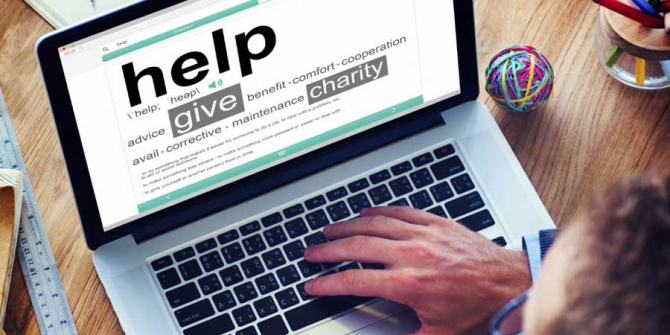It’s often said that kindness never goes unrewarded, but a much better rule for those supporting today’s charity and volunteer organisations would be ‘always plan ahead’. The sad reality is that these Good Samaritans face very real risks, with more than 160 attacks on lone workers occurring in the UK each day.i
Face the risks
For those providing crucial support to charities, time spent lone working is often an essential part of their duties. From undertaking home visits and staffing small charity shops, to carrying out door-to-door collections, these workers regularly face periods when no support is available and their environment is unpredictable. While physical assaults and robbery are ever present risks, verbal abuse or sexual harassment can also cause significant anxiety and distress.
Consider volunteers making home visits. A charity has no direct control over the working environment here: the need to deal with unexpected people or intense emotional situations can arise organically. This is complicated by the fact that one lone worker may visit many different locations in the same day, often on foot and outside of normal working hours, including late at night.
Additionally, charities frequently deal with the most vulnerable people in society, such as the mentally ill or those overcoming substance addictions. Not only can the behaviour of these people be unpredictable, many of them also live in high-crime areas. While those helped by charities are often in desperate need, workers and volunteers should never be put at undue risk.
Plan ahead
To protect the Good Samaritans in our communities, organisations need to get proactive. Comprehensive training and clear policies are essential to help lone workers assess risks, take precautions and know what to do if a dangerous or uncomfortable situation occurs.
Some charities rely on a ‘buddy system’ to protect lone workers, but these are frequently unreliable. A lack of available staff, forgetfulness or simple human error can cause the whole system to collapse and leave employees in jeopardy.
Fortunately the technologies available to support lone workers have come on in leaps and bounds, allowing charities to monitor the status and location of their staff and volunteers in an easy, streamlined and efficient way. One simple, quick and low-cost solution is LONEALERT’s smartphone app, which can be installed from any of the major app stores and provides GPS location tracking, timed check-ins and a designated panic button for emergencies. Similarly, our Text-In Service lets workers use any phone to set up check-ins or raise the alarm in an emergency.
It’s time to act
According to the Institute of Public Care, up to 27% of social care organisations still don’t have policies and procedures for staff to follow when facing violence or abuse.ii It’s time for this to end – and the solutions don’t need to cost the Earth or take months to roll out.
In fact, lone worker solutions can protect charities as much as employees and volunteers. After all, every employer has a Duty of Care to assess the risks to workers and take steps to control them. There are stark consequences when this doesn’t happen. One mental health charity was recently fined more than £50,000 after an employee was tragically killed during a home visit.iii
By empowering staff with robust protection anytime and anywhere, charities can ensure their workers are more confident and attract more volunteers to their cause. Even better, paid staff will be freed from overseeing those in the field, meaning more time can be dedicated to the real goal: helping those in need.
- Facilities Management Journal, White paper advises on protecting lone workers, 2014: http://www.fmj.co.uk/protecting-lone-workers
- Institute of Public Care, Violence against social care and support staff: Response from online survey, 2013: http://www.skillsforcare.org.uk/Document-library/NMDS-SC,-workforce-intelligence-and-innovation/Research/Violence-reports/Violence-against-social-care-workers---survey-report.pdf
- HSE, Mental health charity fined after death of support worker, 2010: http://www.hse.gov.uk/press/2010/coi-ne-03210.htm

